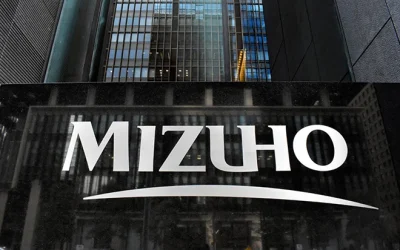When the IPO of Allegro, Poland’s biggest ecommerce company, was announced earlier this month it had a lofty valuation attached and some equally lofty hopes — that it would boost the country’s fortunes as a financial centre and help end the “old economy curse” afflicting the Warsaw exchange.
Allegro’s owners, private equity groups Permira, Cinven and Mid Europa Partners, were targeting a valuation of between €10bn and €12bn. In the event, the company raised 9.2bn zloty ($2.3bn) at its market debut on Tuesday, giving it a valuation of 44bn zloty or $11.2bn. This makes it Poland’s biggest IPO and Allegro the country’s largest listed company.
The scale of demand for shares in a company that intersects tech and retail was such that Allegro last week raised the amount of stock it was selling by 14 per cent from 216m to 246.9m shares. This fed optimism that the successful IPO of a company powered by the country’s growing middle-class would give a new lease of life to GPW, the Warsaw exchange.
“There is a sense of hope and expectation that this IPO is going to put Poland as a public equities market back on the radar screens of global investors,” said Leszek Muzyczyszyn, senior partner at Innova Capital and president of the Polish Private Equity Association.
Ten years ago, there was confidence in the Polish capital that GPW was on course to achieve regional pre-eminence and with it, international prestige, a feeling reflected in heady talk of a Warsaw-driven merger with the Vienna stock exchange.
That reflected the remarkable progress between 1991 — when the exchange was established with five listed companies and a daily turnover of just $2,000 — and 2013, when monthly turnover approached $4bn and talk of the Vienna merger reached its height.
But as Marek Dietl, chief executive, acknowledged, GPW’s rapid growth through the 2000s had relied upon a model that now looks outdated.
On the supply side, a series of privatisations of state-owned utilities offered regular trading frenzies; on the demand side, a 1999 pension reform created privately managed “open” pensions funds, which were flush with public pension cash and restricted to investing in Poland.
“A head of the Prague stock exchange once put it that a monkey could run the exchange in Warsaw [during that period], given the injection of capital it was getting every month,” said Mr Dietl.
Part of that model was dismantled with pension reforms in 2011 and 2013: contributions to open pension funds fell sharply and the government transferred $38bn of treasury bonds held by the funds to the state pension scheme and cancelled them, shaking investor confidence and dealing a lasting blow to general stock market liquidity.
The supply of privatisations also dried up, leaving GPW with slim pickings in the form of large, often state-owned companies in stagnant sectors such as banking and energy.
The country’s blue-chip WIG20 index of the 20 largest listed companies has hardly grown at all compared with peers over the past decade, offering a mere 5.7 per cent total return in zloty terms. The MSCI Emerging Markets Index grew 32 per cent in dollar terms over the same period, while the MSCI World Index of stocks in developed nations gave a return of 194.4 per cent. The number of companies listed on the Warsaw exchange has fallen every year since 2016.
At the same time, however, the Polish economy grew at an average annual real terms rate of 3.7 per cent between 2013 and 2019. Between 1992 and 2019, the country had 27 years of uninterrupted GDP growth, a record matched only by Australia and in 2018, FTSE Russell, one of the big index providers, promoted the country from “advanced emerging” to “developed” market status.
With access to sources of funding ranging from bank lending to state and European development funds and private capital markets fuelled by foreign investment, Polish companies have thrived, while Warsaw has flourished as a hub for tech start-ups. The 2019 total stock of foreign investments in Poland was $236.5bn, a 26 per cent increase on 2010.
“The private capital markets have been hugely important in fuelling growth, but if you compare us with western European countries we still make up a much lower proportion of the capital markets as a whole,” said Mr Muzyczyszyn. “The economy needs the stock exchange and companies need the option of a well-performing IPO market.”
Alongside the Allegro IPO, and another round of pension reforms that are expected to improve general liquidity, other planned listings should boost the Polish market.
Pay-TV platform Canal+ Polska has announced its intention to float in Warsaw, as has Huuuge, a US-registered mobile games app provider that does a lot of business in Poland.
Some notable new economy success stories are among the current crop of listed companies. CD Projekt is the Polish video game maker behind the Witcher series. It is presently the largest company on the GPW with a market capitalisation of $11.5bn and its share price has risen 16 fold in the past five years.
“These stories make a real difference to the story of our exchange,” said Mr Dietl. “The end of the old model was a kind of small-scale shock therapy for the capital markets, but Allegro is one of several signs that we are recovering.”
Challenges remain. CD Projekt has to navigate the autumn release of its Cyber Punk 2077 role-playing video game, while Allegro may yet have to fend off a challenge from Amazon’s European base in Germany. The grip of “old-economy” companies may be loosening, but their presence will continue to be felt.
It also remains easier and more profitable for Polish retail investors to dive into real estate or foreign markets through online trading platforms. Then there is the fact that Poland’s per capita financial assets in 2019 were €13,766, compared with €25,807 in Greece and €79,779 in Germany.
“The journey has only just started,” said Maciej Bukowski, president of economic think-tank WiseEuropa. “The markets and regulators still have a lot to do — a new generation of companies needs to be matched by a new generation of investors.”
For now, say observers, the optimism associated with the Allegro IPO is accompanied by a sense of realism about what Warsaw can achieve, given the GPW’s total market capitalisation is roughly equivalent to that of Netflix.
“Allegro won’t determine the fate of the Warsaw Stock Exchange, just as the Warsaw Stock Exchange won’t determine the fate of the Polish economy or the global markets,” said Bartosz Pawlowski, chief investment officer at Commerzbank subsidiary mBank’s private banking division. “Our aim should not be to have clocks in trading floors across the world set to ‘Warsaw time’. It should be simply to create something in which investors can have confidence.”
Source: Financial Times
Can’t stop reading? Read more
Baillie Gifford and GIC back Toss in secondary fintech investment
Baillie Gifford and GIC back Toss in secondary fintech investment South Korean fintech platform...
Energy Capital Partners returns $5.5bn to investors after record exit year
Energy Capital Partners returns $5.5bn to investors after record exit year Energy Capital Partners...
KKR-backed Avendus sale gives Mizuho $516m entry into India investment banking
KKR-backed Avendus sale gives Mizuho $516m entry into India investment banking Mizuho Financial...




